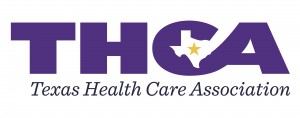Nursing Home Provider Survey Indicates Improvement in Quality Measures, Challenges with Staff Recruitment and “Wish List” Should the Legislature Address the Medicaid Funding Shortfall
For Immediate Release
May 18. 2015
Contact: Rebecca Reid
410-212-3843
Nursing Home Provider Survey Indicates
Improvement in Quality Measures, Challenges with Staff Recruitment and
“Wish List” Should the Legislature Address the Medicaid Funding Shortfall
THCA Commitment to Care Survey Utilizes Provider Responses to
Illustrate Successes and Challenges within Long Term Care Delivery System
(Austin, TX) – A survey released today by the Texas Health Care Association (THCA) compiles direct responses of nursing home providers making the “Commitment to Care,” an initiative designed to intensify efforts to elevate the quality of care in Texas skilled nursing facilities, and indicates a majority have improved several quality measures over the last year while being challenged with high staff turnover rates and a $343 million Medicaid funding shortfall.
“The Commitment to Care survey is an accurate reflection of the areas of care where facilities are making actual improvements as well as the ongoing challenges of stabilizing a workforce that is essential to elevating the quality of care on a consistent basis,” said Kevin Warren, President and CEO of the THCA. “As our state legislators make final decisions on funding, we urge them to close the gap in the funding shortfall for the 60,000 elderly Medicaid beneficiaries requiring skilled care in Texas nursing homes.”
The current daily Medicaid rate for skilled nursing care pays approximately six dollars an hour per patient to care for elderly beneficiaries requiring assistance to manage various complex conditions, including dementia, loss of mobility and challenges in independently completing the activities of daily living (ADLs).
The Commitment to Care survey, taken from January this year up to the first week of April, indicates the following:
- Nearly seventy percent of responding facilities have reduced the use of antipsychotics
- More than fifty-five percent have reduced re-hospitalizations
- Nearly fifty-seven percent have reduced pressure ulcers
However, seventy-four percent cite direct care staff turnover as the chief obstacle to achieving facility improvement goals. Should the state legislature close the gap in the Medicaid funding shortfall, providers cited their top three priorities moving forward:
- Increase staff wages
- Hire additional direct care staff
- Invest in staff education and training
Results from the entire survey can be viewed here.
“Texans understand the importance of providing quality care for our state’s aging population and the significance that appropriate Medicaid funding plays in meeting their health care needs,” noted Warren. “The current Medicaid rate falls far short of covering the actual cost of caring for seniors today. Nursing home providers must also be able to plan for the future influx of baby boomers who will depend upon long term care.”
# # #
About THCA
Founded in 1950, the Texas Health Care Association (THCA) is the largest long-term care association in Texas. THCA’s membership is comprised of several hundred licensed non-profit and for-profit skilled nursing facilities (SNFs), specialized rehabilitation facilities and assisted living facilities in Texas. These facilities provide comprehensive, around-the-clock nursing care for chronically ill or short-term residents of all ages, along with rehabilitative and specialized medical programs. THCA also represents more than 190 long-term care businesses that provide products and services to the state’s approximately 2,850 nursing homes and assisted living facilities. To learn more, visit http://txhca.org/ or connect with THCA on Facebook, Twitter and YouTube.


